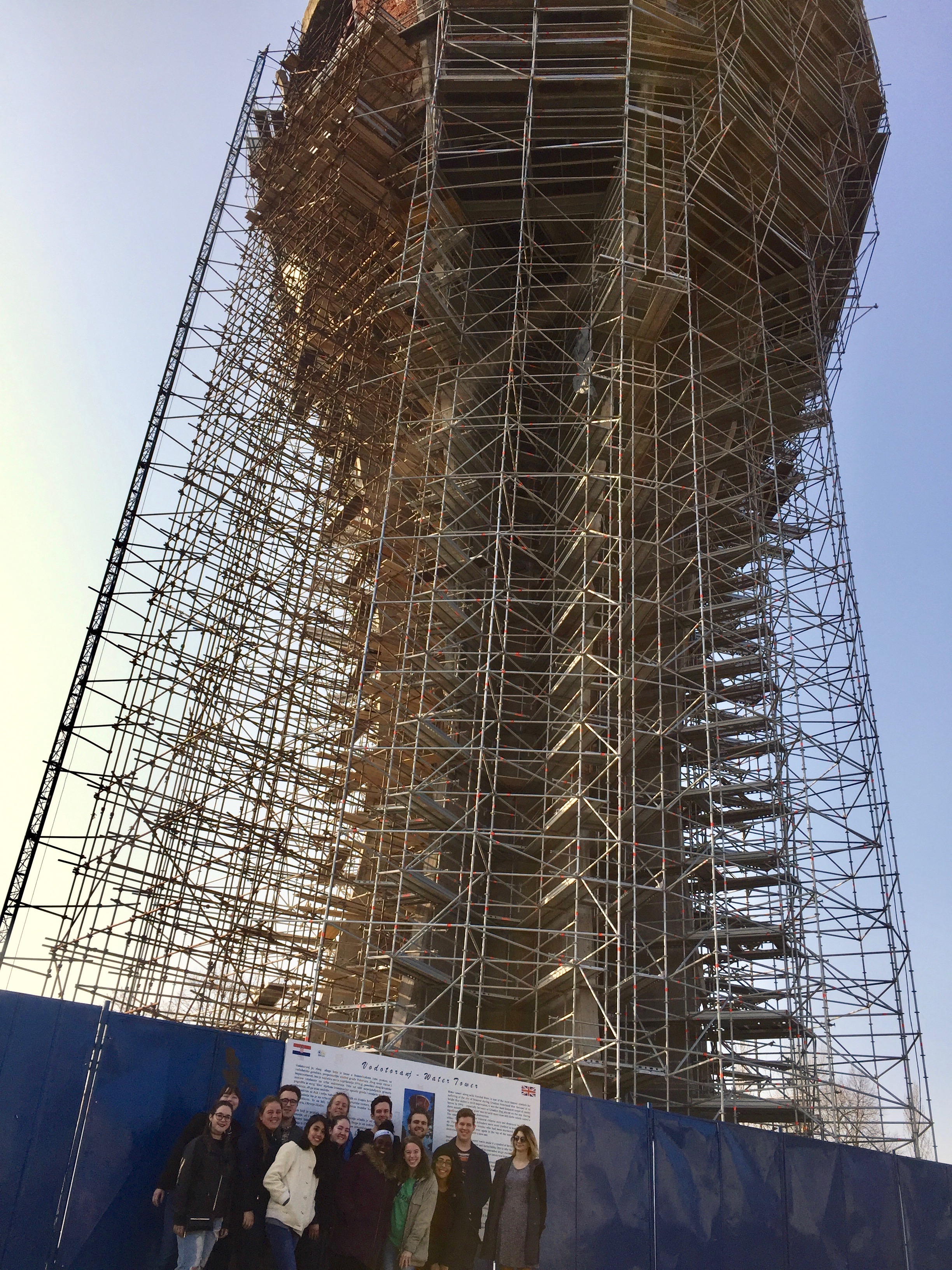On March 1st, the 6th Balkans Semester for the Study of War and Peace began with a cohort of 14 students from Gordon College, Messiah College, and Wheaton College. Even though we began with a few weeks of unusual snow and cold, this group has been engaged and excited about their semester (we have not even taken the characteristic 'cohort photo' on the terrace because the weather was so cold)! Thankfully, the weather has turned, the Magnolia tree at the center is touched with pink, and spring officially came.
Standing on the banks of the Danube in Vukovar, Croatia
In addition to beginning classes, starting internships, and adjusting to living in Croatia, we embarked on our annual trip to Belgrade & Vukovar last week.
Vukovar, Croatia
Our trip to Belgrade & Vukovar naturally focuses on the tragedies that happened and how we should properly mourn these events. Yet Vukovar is also a prime example of another significant factor of peace work and post-conflict reconciliation: the challenges of post-conflict recovery.
In early spring the weather in Vukovar is typically a cloudy gloom, which lends itself well to the equally gloomy post-conflict political and economic environment. The town is mired in political divisions: within Croatia, Vukovar is defined primarily by its wartime past, and denied the opportunity to become much beyond that. The economic situation is discouraging: young people are moving away for job opportunities elsewhere, and the factory that previously employed many in the area is now a small fraction of its former size.
Yet on this trip, we enjoyed relatively sunny weather. When the sun is shining, Vukovar is a beautiful town—situated on the Danube and surrounded by miles of beautiful farmland, it’s easy to imagine Vukovar as the economic center it was before the war. Beautiful weather seems to situate the town in a more holistic light, where Vukovar’s gloomy, post-conflict quagmire is contrasted by the potential for the town to be defined by more than that single dimension.
Clearly, beautiful weather will not solve the challenges that post-conflict recovery presents, nor is the situation in Vukovar something that can be oversimplified. Reconstructing society after a conflict is a challenging and arduous task, and what recovery should look like depends on context. Perhaps by reflecting on the contrast of natural beauty—symbolizing hope, and future—and post-conflict gloom, we might better understand the complexity of post-conflict recovery.
This complicated environment of excitement, novelty, joy, and exploration of suffering is not an easy journey for students but we already see the value of studying conflict together in community. We are proud of these 14 who have decided to delve into all aspects of the human experience this semester.




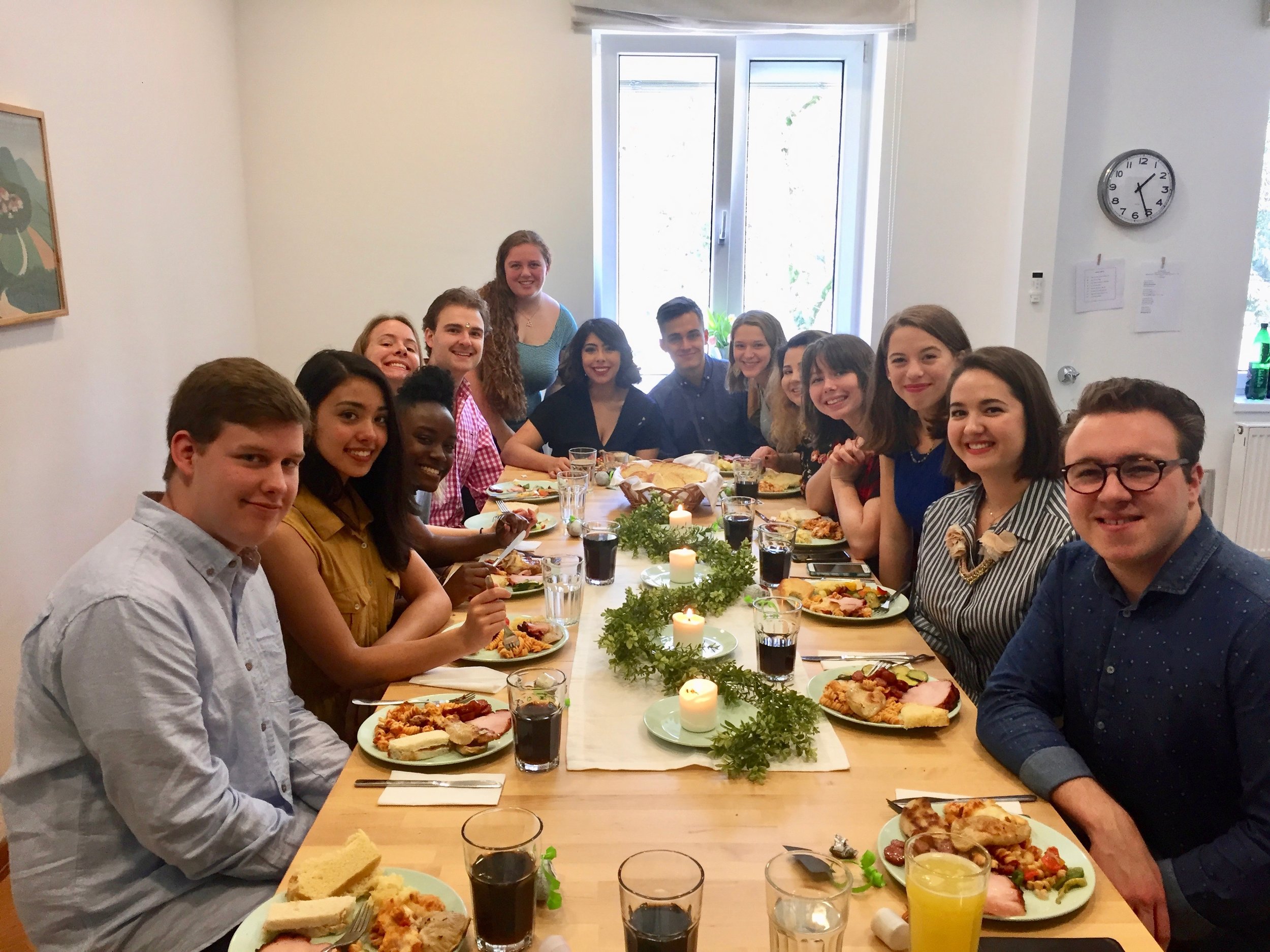
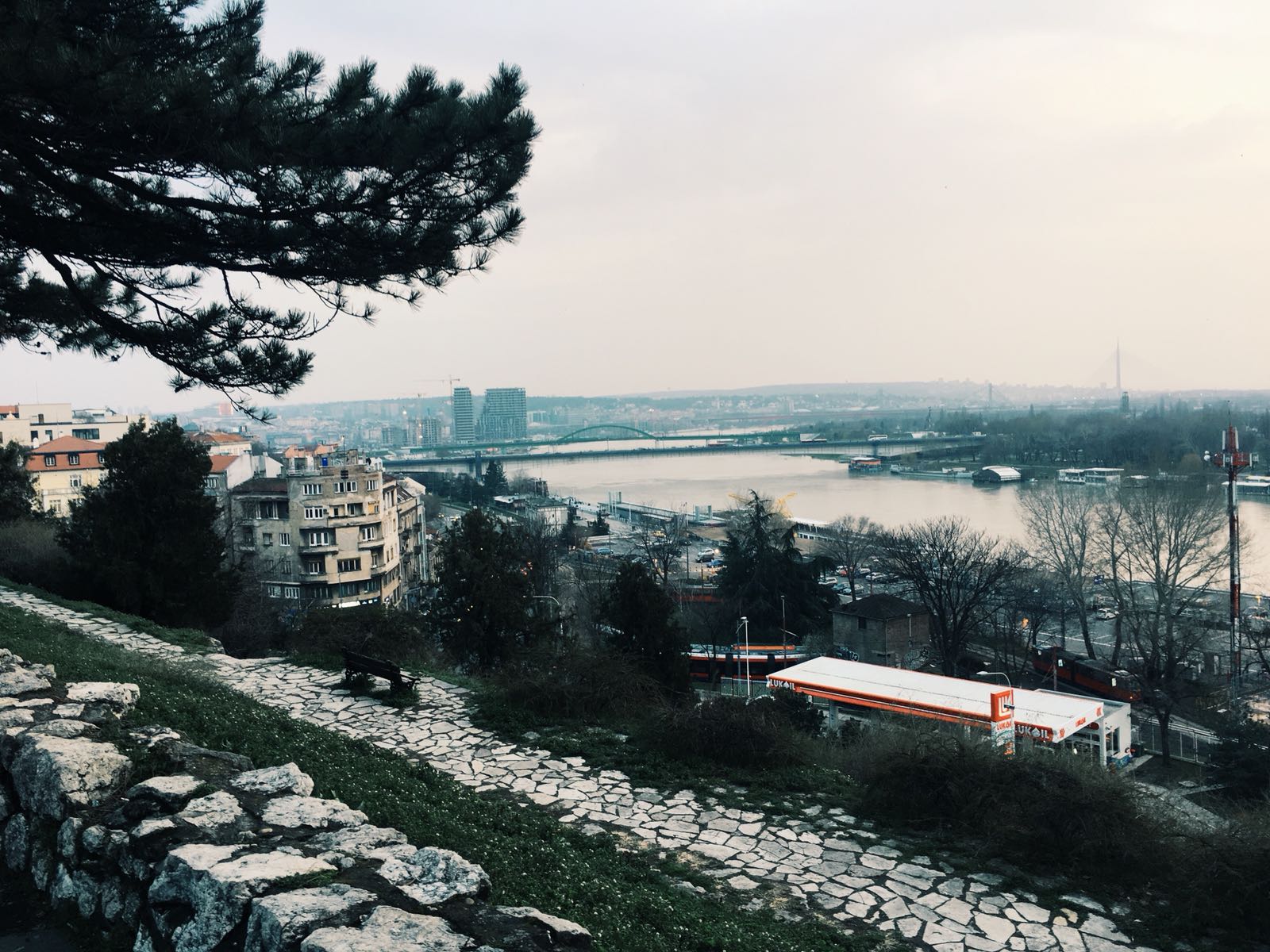
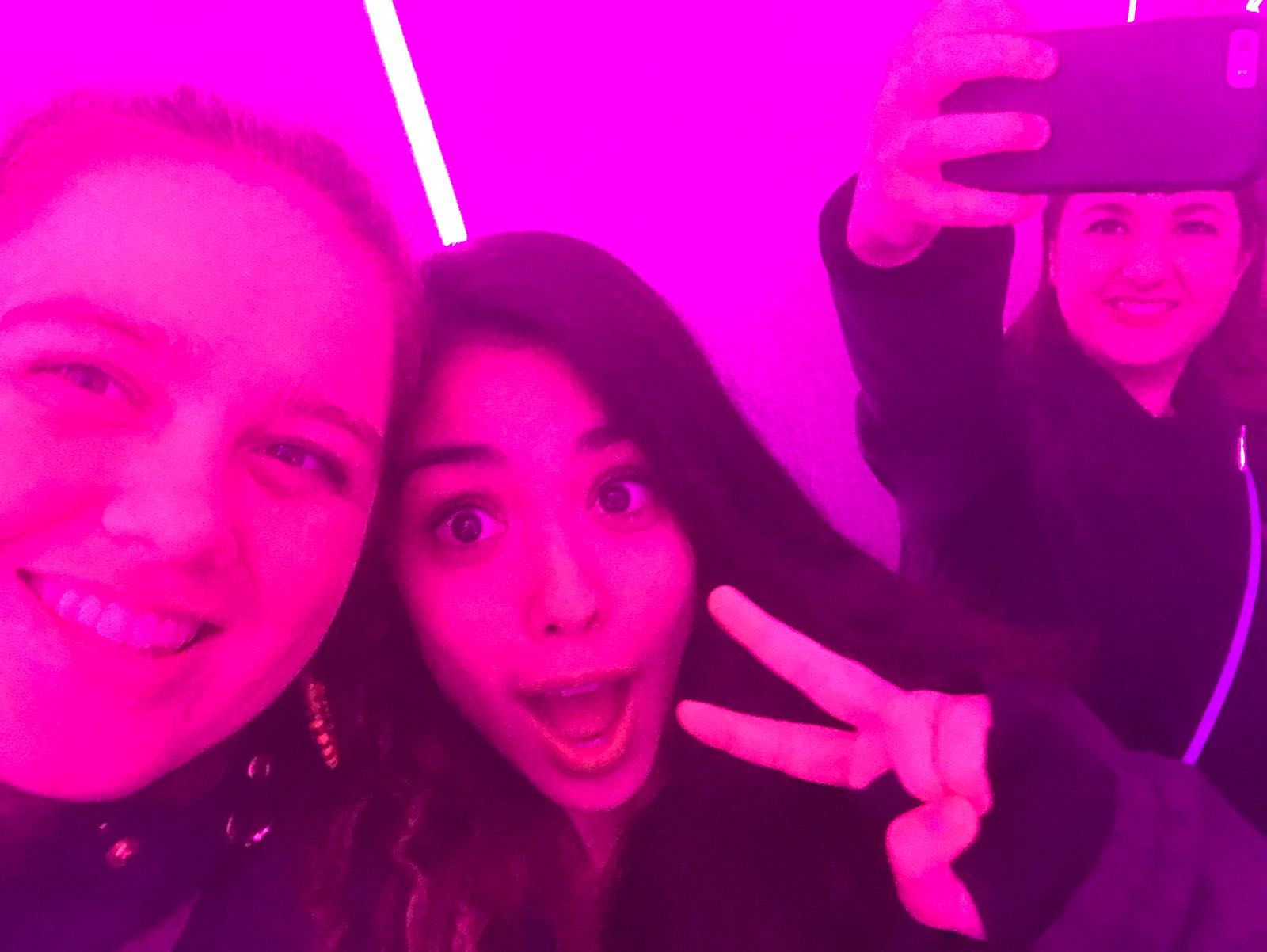
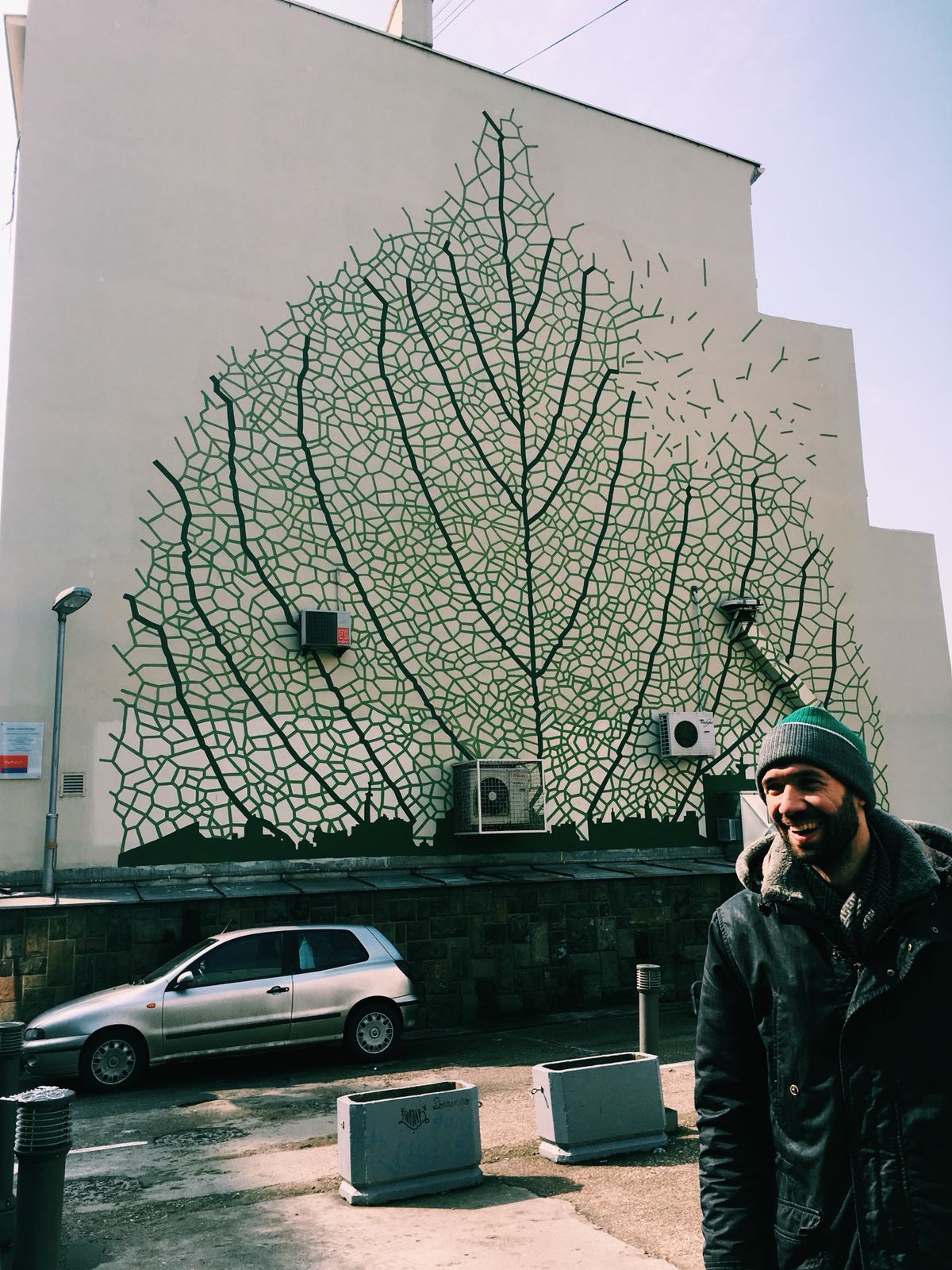
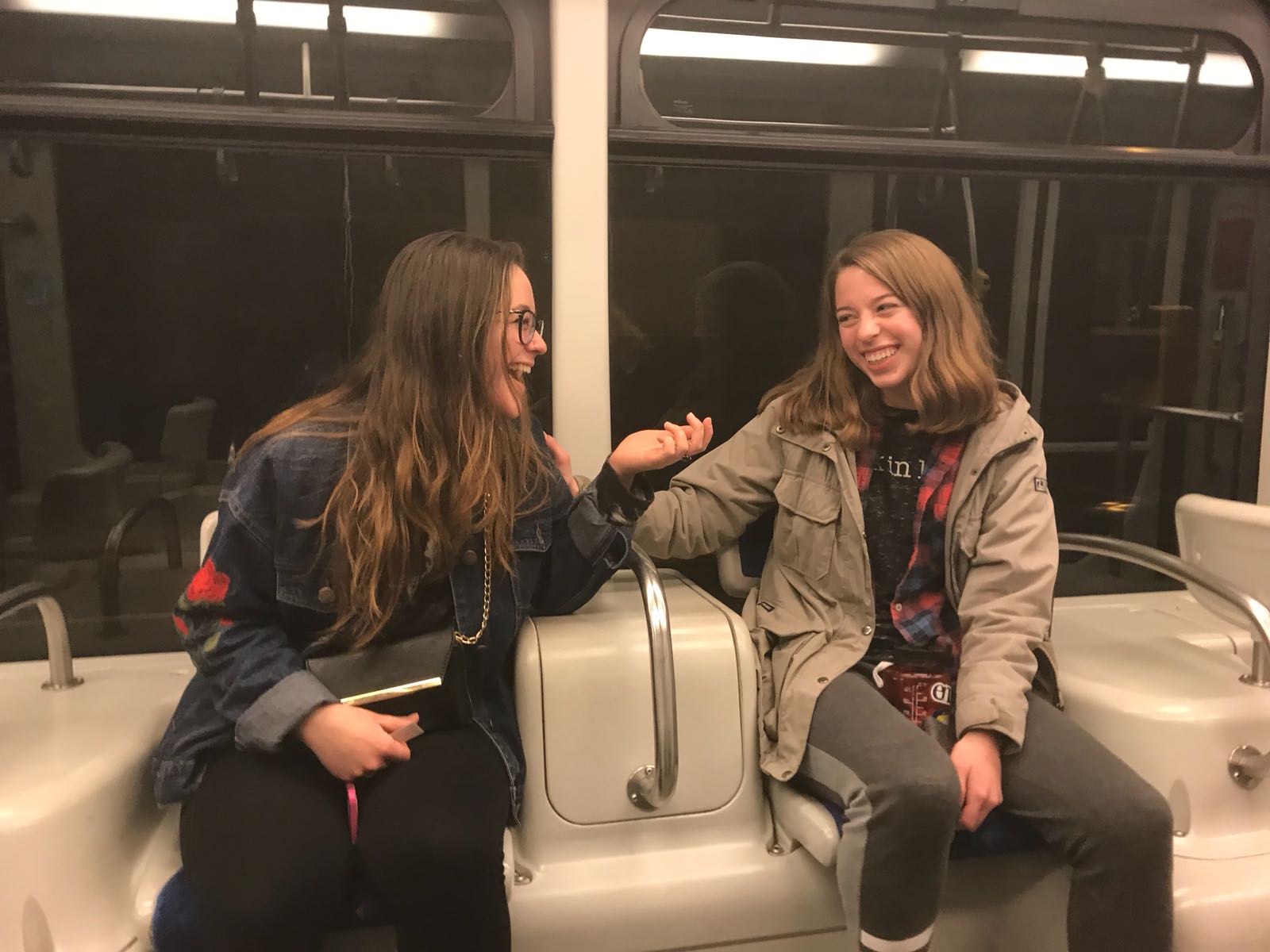
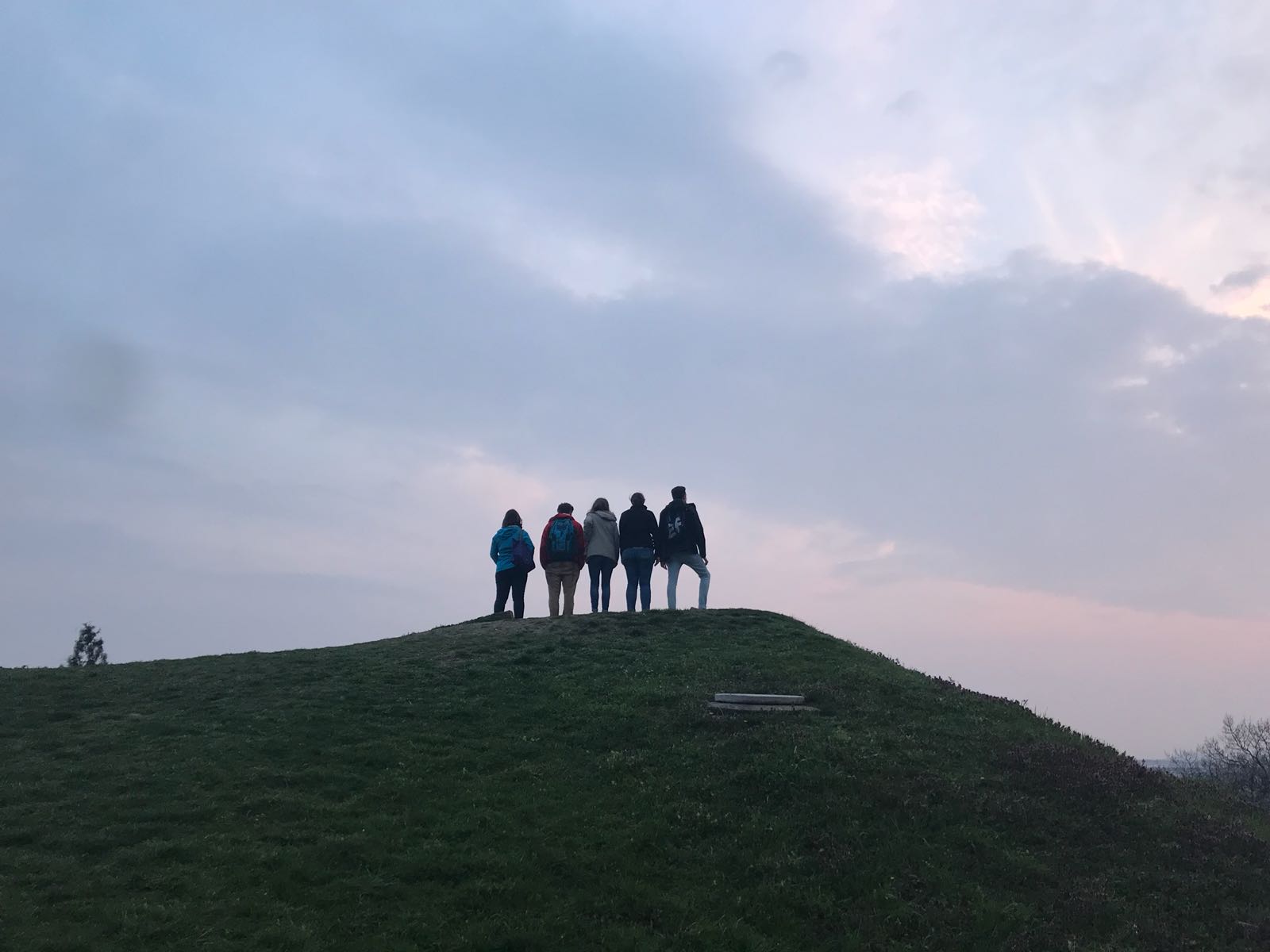
![Spring [Cohort 2018] is Here!](https://images.squarespace-cdn.com/content/v1/54784e3ce4b09b5c2131e0ae/1522943350493-3ZGY5AMVV7S7H2A5S2WC/IMG_0545.jpg)

